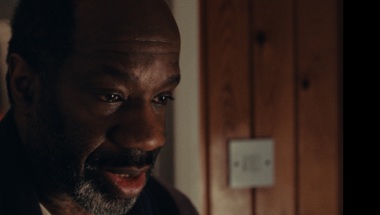
Can we make the prostate cancer diagnosis pathway fairer for Black men?

Grant information
Reference: RWE25-ST2-003
Lead researcher: Professor Jonathan Aning
Institution: North Bristol NHS Trust
Award: £253,540
What you need to know
- Black men in the UK are more likely to get prostate cancer and die from it, yet they’re often diagnosed too late. This study asks whether earlier checks could help.
- Researchers will look at NHS data to see how well current tests work for Black men, and whether they cause harm or help.
- The goal is to deliver clearer answers that help ensure Black men receive fair, timely, and effective prostate cancer checks and care.
Why are we funding this research?
Prostate cancer affects thousands of men every year, but Black men in the UK are twice as likely to be diagnosed with it – and to die from it – than men of other ethnicities. That’s a serious inequality, and this research is trying to understand why it happens and what can be done about it.
Right now, the NHS usually only checks men for prostate cancer if they have symptoms or a high PSA blood test result. But for many Black men, that can be too late. The way doctors investigate prostate cancer has changed in recent years, with the inclusion of MRI into the diagnostic pathway and increased use of a less harmful biopsy technique to diagnose patients. This study, called the DISCORDANCE study, will look at how well that modern approach works for Black men, and whether it’s time to offer earlier checks.
The results could help shape future NHS guidelines and make sure Black men get fairer, earlier access to life-saving prostate cancer checks.
What will the researchers do?
To understand how prostate cancer affects Black men in the UK, the researchers behind DISCORDANCE are diving into NHS data that’s already been collected during routine care. They’re not doing new tests or asking men to take part directly. Instead, they’ll study anonymous records from men who’ve already gone through the process of being checked for prostate cancer.
They’ll look closely at how many Black men are diagnosed, how early or late the cancer is found, and what kinds of tests and treatments they’ve had. Importantly, they’ll also explore whether the current system causes any harm, such as whether Black men are undergoing a biopsy, when this was not needed. These harms were chosen with input from Black men themselves, including those who’ve had prostate cancer and those who haven’t but might face testing in future.
The team will compare what happens to Black men with what happens to men from other ethnic backgrounds. That way, they can spot any differences and figure out whether the current approach is working fairly for everyone.
By the end of the project, the researchers hope to give clear answers about whether earlier checks – like routine PSA blood tests – could help save Black men’s lives. Their findings will be shared with doctors, policy makers, and Black communities, helping to shape better, fairer care for the future.
This award will help us address a crucial evidence gap by showing the benefits and risks of the modern diagnostic pathway for Black men. This should lead to better information that supports shared decision-making and makes Black men’s care fairer. Importantly, by partnering with Black men and patient groups, we aim to communicate our findings with cultural sensitivity.
How will this benefit men?
By looking at how the current testing system works in practice, the DISCORDANCE study aims to spot where things go wrong and where they could be improved.
If the researchers find that earlier checks, like routine PSA blood tests, help catch cancer sooner without causing unnecessary harm, it could lead to changes in NHS guidelines. That means more men might be offered tests before symptoms appear, giving them a better chance of successful treatment.
The study also puts Black men’s voices at the heart of the work. It’s not just about numbers - it’s about understanding real experiences, including the emotional toll of testing and diagnosis. In the long run, this research could help make prostate cancer care more fair, more effective, and more tailored to the needs of those most at risk.
Help us fund more research like this
Your donation helps us fund lifesaving research that's making prostate cancer care fairer for everyone.





